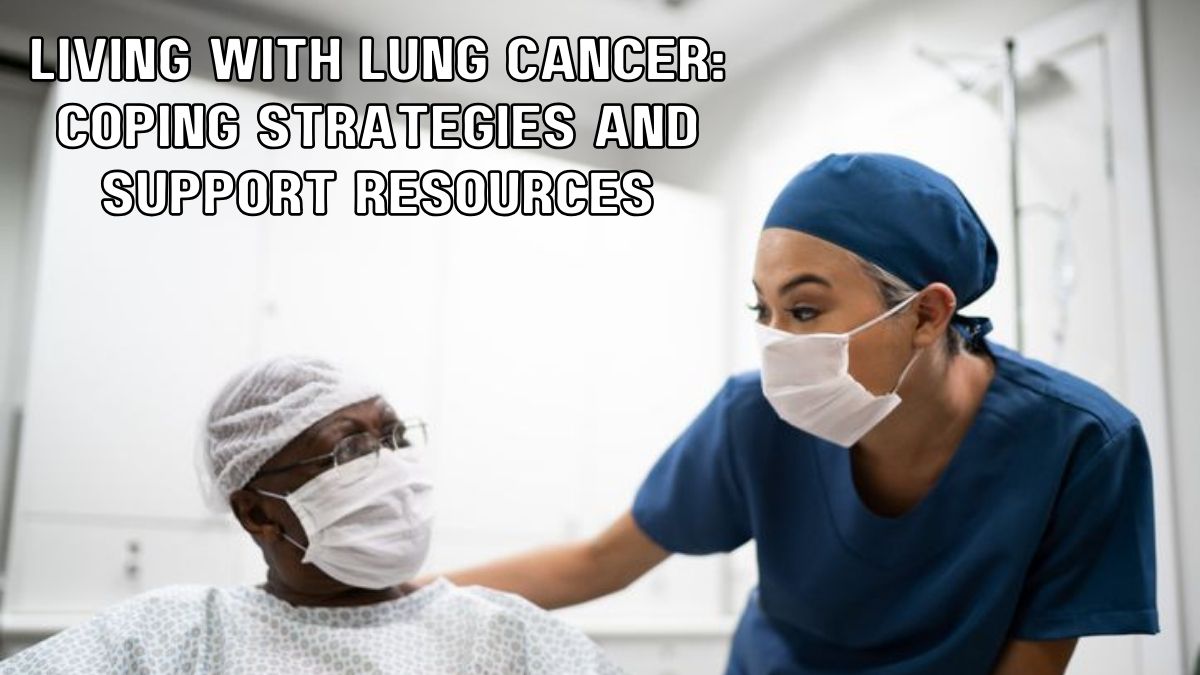Being diagnosed with lung cancer can be a life-altering experience, not only for the patient but also for their loved ones. It’s crucial to understand that living with lung cancer involves not only medical treatments but also coping strategies and finding the right support. In this blog post, we’ll explore effective coping mechanisms and essential support resources that can help individuals navigate their lung cancer journey.
Coping Strategies
1. Educate Yourself:
Knowledge is empowering. Take the time to educate yourself about lung cancer—understand its stages, treatment options, potential side effects, and prognosis. Being informed helps you make well-informed decisions and reduces anxiety.

2. Build a Supportive Network:
Surround yourself with a network of supportive family and friends. Share your feelings, concerns, and fears with them. Emotional support is crucial during this challenging time.

3. Consider Counseling or Therapy:
Professional counseling or therapy can provide a safe space to express your emotions and develop coping mechanisms. A mental health professional can guide you through the emotional challenges that come with a cancer diagnosis.

4. Maintain a Healthy Lifestyle:
Focus on a balanced diet, regular exercise, and adequate sleep. A healthy lifestyle can improve your overall well-being and complement your medical treatment.

5. Practice Stress-Relief Techniques:
Engage in activities that help you manage stress, such as meditation, deep breathing exercises, yoga, or hobbies that you enjoy. Managing stress positively impacts your mental and physical health.

Support Resources
1. Local Cancer Support Groups:
Joining a local cancer support group can provide an opportunity to connect with others who are going through similar experiences. Sharing stories, tips, and encouragement can be incredibly beneficial.

2. Online Communities:
Explore online forums or social media groups dedicated to lung cancer. These platforms offer a way to connect with a broader community, share experiences, and gain valuable insights into managing lung cancer.

3. Patient Advocacy Organizations:
Organizations like the American Lung Association, Lung Cancer Foundation of America, and Lung Cancer Alliance offer educational resources, support, and advocacy for lung cancer patients and their families.

4. Cancer Treatment Centers:
Reach out to cancer treatment centers or hospitals in your area. They often have specialized support services, counseling, and informational sessions for cancer patients.

5. National Cancer Helplines:
Many countries have dedicated helplines for cancer patients. These helplines can provide information, emotional support, and guidance on available resources.

Living with lung cancer is undoubtedly a significant challenge, but with the right coping strategies and a strong support network, individuals can enhance their quality of life and navigate this journey more effectively. Remember, reaching out for help is a sign of strength, and there are numerous resources available to support you through this difficult time.












